
Cancer is a condition where some of the body's cells grow uncontrollably and spread to other parts of the body. Normally, cells grow and divide as needed. But in cancer, this process breaks down, leading to abnormal growths called tumours.
A tumour is an abnormal mass of tissue resulting from excessive cell growth. Under normal circumstances, cells grow, divide, and die in a controlled manner. However, when this process is disrupted, cells can proliferate uncontrollably, forming a tumour. Tumours can be classified as:
People need treatment for cancer and tumours to remove or destroy cancer cells, stop the disease from spreading, and reduce the risk of it coming back. Treatment can also help relieve symptoms like pain or swelling and improve overall quality of life. In many cases, it helps patients live longer, even if the cancer cannot be fully cured.
Cancer and tumours can happen due to several factors:
Cancer can affect almost every part of the body. Identifying them early increases the chances of successful treatment. Symptoms vary depending on the tumour’s location. Below are some of the most commonly diagnosed types of cancer and the organs they affect, with links to detailed guides on symptoms, diagnosis, treatment options, and patient support.
Head tumours, especially brain tumours, can affect thinking, movement, and basic body functions. Common symptoms of a brain tumour include:
No, a brain stroke and a brain tumour are not the same. They are entirely different medical conditions, though some of their symptoms may overlap.
Key Differences are as follows:
Explore the detailed Brain Tumour treatment in India, including cost and hospitals
An abdominal tumour can develop in different organs, such as the stomach, liver, kidneys, colon, spleen, appendix, or ovaries. The early symptoms of an abdominal tumour are not noticeable. However, as it grows, certain signs may appear depending on its location, whether it's a tumour on the right side of the abdomen or a tumour on the left side of the abdomen.
Common early symptoms of an abdominal tumour include:
These symptoms vary depending on the organ involved. For example:
Explore the detailed Abdominal Tumour treatment in India, including cost and hospitals
Tumours in the anal passage, also called anal cancer, affect the end part of the gastrointestinal tract. Early detection is important, but often difficult due to overlapping symptoms with other anorectal conditions like piles.
Common signs include:
Explore the detailed Anal Tumour treatment in India, including cost and hospitals
Lung cancer occurs when abnormal cells grow uncontrollably in the lungs, forming tumours.
Causes of lung cancer:
Lung cancer treatment depends on the stage and may include surgery, chemotherapy, radiation, or targeted therapy.
Explore the detailed Lung cancer Treatment in India, including cost and hospitals
Breast cancer happens when abnormal breast cells grow uncontrollably and form a tumour.
Causes of breast cancer:
Symptoms of breast cancer:
Explore the detailed Breast Cancer Treatment in India, including cost and hospitals
Prostate cancer starts in the prostate gland and can grow slowly or spread to other areas.
Causes of prostate cancer:
Symptoms of prostate cancer:
Explore the detailed Prostate Cancer in India, including cost and hospitals
Bone cancer begins when abnormal cells grow in the bone, forming a tumour.
Causes of bone cancer:
Symptoms of bone cancer:
Explore the detailed Bone Cancer Treatment in India, including cost and hospitals
Colorectal cancer starts in the colon or rectum, often from polyps that become cancerous over time.
Causes of colorectal cancer:
Symptoms of colorectal cancer:
Explore the detailed Colorectal cancer treatment in India, including cost and hospitals
Cervical cancer begins in the cervix, usually due to long-term infection with high-risk types of HPV.
Causes of cervical cancer:
Symptoms of cervical cancer:
Explore the detailed Cervical Cancer Treatment in India, including cost and hospitals
Liver cancer starts in the liver cells and can grow aggressively or spread to other parts of the body.
Causes of liver cancer:
Symptoms of liver cancer:
Explore the detailed Liver Cancer Treatment in India, including cost and hospitals
Blood cancer affects the blood, bone marrow, or lymphatic system, causing abnormal blood cell production.
Causes of blood cancer:
Symptoms of blood cancer:
Explore the detailed Blood Cancer Treatment in India, including cost and hospitals
Kidney cancer starts in the kidneys when abnormal cells grow uncontrollably, forming a tumour.
Causes of kidney cancer:
Symptoms of kidney cancer:
Explore the detailed Kidney Cancer Treatment in India, including cost and hospitals
Throat cancer develops in the throat (pharynx or larynx) when abnormal cells grow and form tumours, potentially affecting speech and swallowing.
Causes of throat cancer:
Symptoms of throat cancer:
Explore the detailed Throat Cancer Treatment in India, including cost and hospitals
Symptoms of cancer and tumours should never be ignored. Early treatment improves survival chances and can prevent the tumour from spreading.
Doctors may start treatment after:
The survival time after a cancer diagnosis can vary widely depending on several key factors.
1. Type of Cancer
Some cancers grow slowly and respond well to treatment, while others progress quickly.
2. Stage at Diagnosis
3. Treatment and Response
4. Overall Health and Age
While not all cancers can be prevented, certain lifestyle choices and medical interventions can lower the risk. Early detection and proper treatment significantly increase the chances of survival.
Prevention Tips
Survival Strategies After Diagnosis
Cancer can be managed as a chronic condition with ongoing treatment and monitoring. Emotional support, proper nutrition, and regular follow-ups all play important roles in recovery. If you suspect any of these symptoms or tumours or want a consultation, contact Bangla Health Connect, which connects you with experts at Apollo Hospitals.
.png)
India is a leading destination for cancer treatment, especially for Bangladeshi patients seeking trusted, affordable, and expert care.
Key reasons to choose India:
India offers the right mix of skilled doctors, advanced treatment options, lower cost, and patient-friendly services for all treatments.
Contact Bangla Health Connect today to connect with top Indian hospitals or get a second opinion.
Apollo Hospitals offer advanced treatment for cancers and tumours.
.jpg)


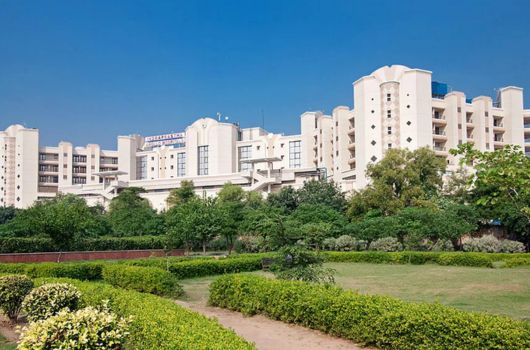
.jpg)



For cancer and tumour treatment, Apollo Hospitals in India provides world-class care by a team of leading cancer specialists. Apollo is also known for offering easy medical care for international patients, with help in language, travel, and stay.
India offers advanced cancer and tumour treatment at a much lower cost compared to many other countries. On average, cancer treatment in India can range from ₹2,00,000 to ₹8,00,000 (approximately $2,400 and $9,600). The final cost may vary based on multiple factors such as the treatment method, hospital location, and type of tumour. Before viewing the detailed table of treatment-wise costs, it's helpful to understand what influences these expenses most.
Several factors can impact how much tumour or cancer treatment will cost in India:
Cost Breakdown for Cancer and Tumour Treatments in India
The average cost for cancer and tumour treatment is as follows:
Note - The costs listed are approximate and may vary based on hospital, location, and patient needs. Consult the healthcare provider for accurate and updated information.
The currency conversion rates in the table above are based on data from July 2025.
For a detailed breakdown and more information on treatment expenses, you can contact Bangla Health Connect for treatment costs at Apollo Hospitals in India.
Success in cancer and tumour treatment means the tumour is fully removed or controlled, symptoms are reduced, and the patient can return to a normal or near-normal life.
The survival insights of cancer depend on several factors, including the type of cancer, its stage at diagnosis, the patient’s age and overall health, and how well the cancer responds to treatment.
Some cancers, like thyroid, prostate, and early-stage breast or colon cancer, have high five-year survival rates, often exceeding 90%. Others, such as pancreatic or late-stage lung cancer, are more aggressive and may have survival rates below 20%. Early detection significantly improves outcomes, as cancers diagnosed at stages I or II are more likely to be curable. Access to advanced treatment methods like targeted therapy, immunotherapy, and robotic-assisted surgeries also increases the chances of survival.
Apollo Hospitals has a strong record in cancer and tumour treatment, including for patients from Bangladesh. It is trusted for:
Apollo’s expert oncology teams and modern facilities have helped thousands of patients survive and thrive after cancer and tumour treatment.
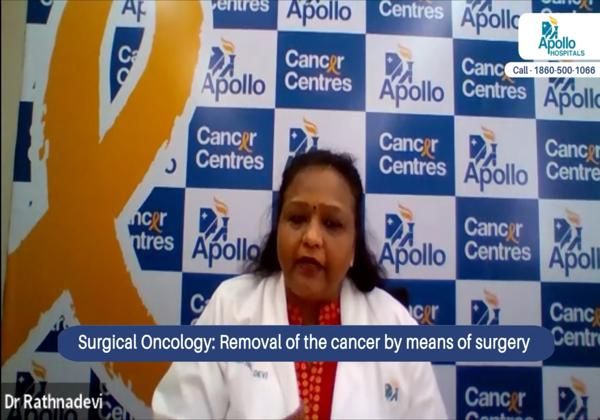
Dr. Rathna Devi, Senior Consultant and Radiation Oncologist at Apollo Cancer Centre, Chennai, discussed the three main treatment approaches: surgical oncology, medical oncology, and radiation oncology. Dr. Devi highlighted how each modality plays a key role in managing different types of cancer. She also focused on advanced surgical techniques and radiation therapies used today, explaining how they help improve recovery compared to earlier times. Having expertise in this field for several years, she is happy that modern-day technologies can help patients regain their normal life.
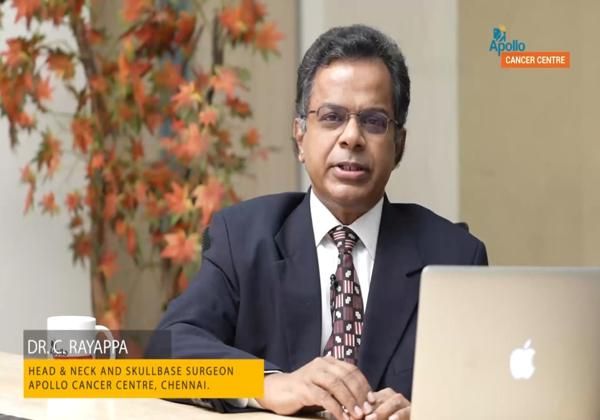
Dr. Rayappa, Head & Neck and Skull Base Surgeon at Apollo Cancer Centre, Chennai, explains parotid gland tumours. These tumours, mostly benign, appear as painless swellings near the jaw or ear. Alarming signs include rapid growth, pain, or facial weakness, possibly indicating cancer. Diagnosis involves clinical exams, imaging, and biopsy. While causes are often unclear, smoking and alcohol may increase the risk. Surgery is the main treatment, with careful attention to preserving the facial nerve. Malignant cases may need radiation or chemotherapy. Dr. Rayappa stresses early diagnosis and expert care for better outcomes, supported by advanced technology at Apollo.
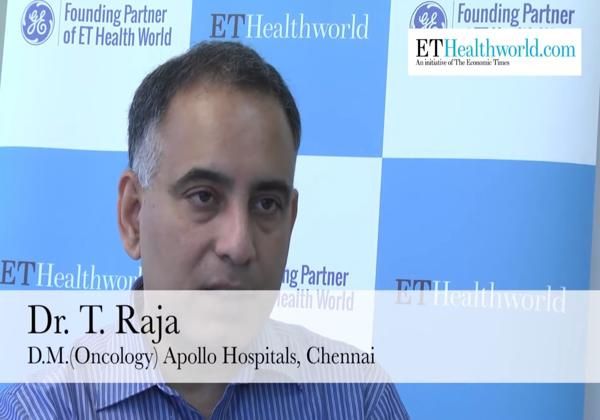
In an awareness session, Dr. T. Raja, Director of Medical Oncology at Apollo Cancer Centre, Chennai, highlighted the rising cancer burden in India, noting that children and adolescents now make up nearly 15% of cases, a harsh and growing concern. He pointed out the increasing onset of cancer in people and the common issue of late diagnosis. Dr. Raja stressed that early detection offers up to an 80% cure rate. He also spoke about advancements in treatment, including proton therapy, targeted drugs, and PET CT scans, which together enhance precision, reduce side effects, and significantly improve cancer care outcomes.
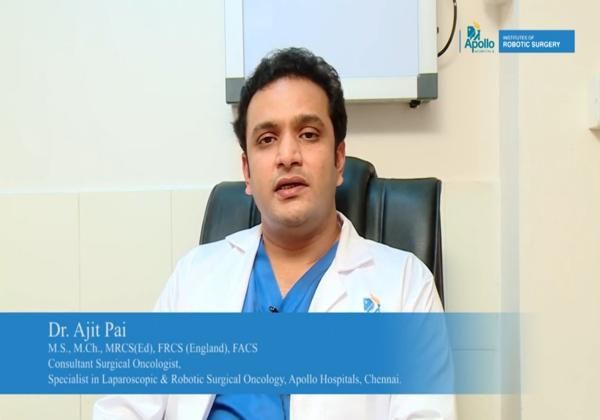
In this session, Dr. Ajit Pai, Surgical Oncologist at Apollo Hospitals Chennai, discussed the growing role of laparoscopic and robotic-assisted surgery in cancer treatment. These minimally invasive techniques allow for precise tumour removal with smaller incisions, leading to less pain, quicker recovery, and minimal scarring. He highlighted their effectiveness in treating gastrointestinal and pelvic cancers, especially when combined with chemotherapy or radiation. Dr. Pai also stressed the importance of specialised training, multidisciplinary teamwork, and ongoing research to improve outcomes and make these advanced techniques more accessible and reliable for cancer patients across different stages of the disease.
Apollo Hospitals are equipped with the latest medical technologies, and their experts are trained to ensure accurate diagnosis, safe treatment, and better survival rates.
Bangla Health Connect helps Bangladeshi patients access trusted, timely, and advanced treatment for cancers and tumours in India. Our team works closely with Apollo Hospitals to ensure every step of your medical journey is smooth and worry-free.
Bangla Health Connect makes this process simple and supportive, from travel arrangements to ongoing medical guidance, ensuring Bangladeshi patients receive high-quality care with peace of mind.
With over 60,000 Bangladeshi patients assisted, Bangla Health Connect has built strong trust through clarity, care, and personal support.
Contact Bangla Health Connect today to begin your treatment journey with trusted support every step of the way.
Note: Bangla Health Connect does not provide medical advice of any kind.
Mr. Iqbal Shahriar, a patient from Bangladesh, was diagnosed with a peri-ampullary tumour after developing multiple abdominal symptoms. He was advised to undergo Whipple’s procedure, a complex and major abdominal surgery. He travelled to India with hope. At Apollo, Dr. JKA Jameel, Senior Consultant in Gastrointestinal and Laparoscopic Surgery, Chennai, performed the surgery successfully and removed the tumour completely. Mr. Shahriar expressed deep satisfaction with the care he received and returned home healthy.
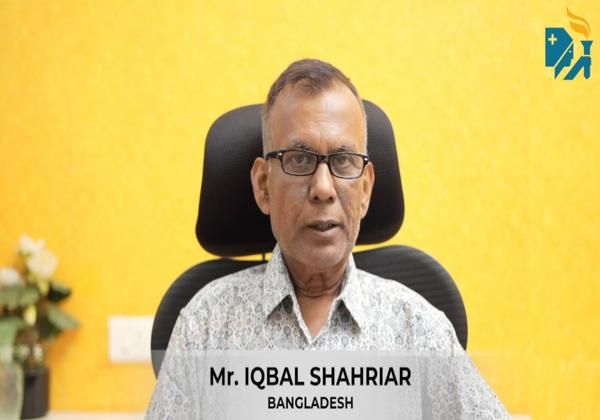
MD Nural Bashar, a patient from Bangladesh, was diagnosed with stomach cancer and advised to undergo treatment by Dr. Ajit Pai, Surgical Oncologist at Apollo Hospitals, Chennai. Dr. Pai had initially met him during a medical camp in Bangladesh. Following the recommendation, Mr. Bashar travelled to Chennai for surgery. The procedure was successful, and he has since returned to a healthy life. Today, he is enjoying a normal routine with his two children and remains grateful for the care and expertise he received at Apollo.
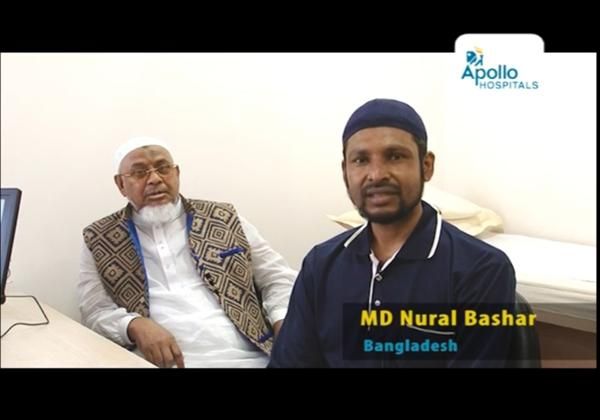
Mr. Rahim, a 45-year-old from Bangladesh, was diagnosed with a complex chest wall tumour located near vital organs. His treatment demanded meticulous planning and expert surgical execution. At Apollo Chennai, Dr. Ashok Kumar and Dr. Suresh Menon successfully removed the tumour without complications. Mr. Rahim made a full recovery, highlighting Apollo’s excellence in managing challenging cancer cases.
✅ Share your reports
✅ Get treatment plans from Apollo Hospitals
✅ Choose the one that fits you
✅ Let us handle the rest
Symptoms vary by location but may include unusual lumps, weight loss, fatigue, changes in bowel or bladder habits, bleeding, or persistent pain. Early detection helps improve outcomes.
Some ways to lower your cancer risk include not smoking, eating a healthy diet, maintaining a healthy weight, regular exercise, avoiding alcohol, getting vaccinated (e.g., HPV), and going for regular screenings.
Some cancers are fully curable, especially if detected early. Others may be controlled long-term with the proper treatment. Advances in surgery, chemotherapy, radiation, and targeted therapies improve survival.
India, especially hospitals like Apollo, has high success rates for early-stage cancers. Even advanced cases see good results with multidisciplinary care. Treatment outcomes depend on the cancer type, stage, and overall health.
Cancer patients should eat high-protein, balanced meals with fruits, vegetables, whole grains, and healthy fats. They should avoid junk food, processed meats, and alcohol unless advised otherwise.
Yes. Bangla Health Connect offers full support from booking top oncologists to airport pickup, cost estimates, and post-treatment follow-up. We ensure a smooth medical journey for Bangladeshi patients.
Yes. Bangla Health Connect helps you select the best Apollo centre based on your cancer type, budget, specialist availability, and city preference.
Yes. Apollo Hospitals follow world-class hygiene and treatment protocols.

